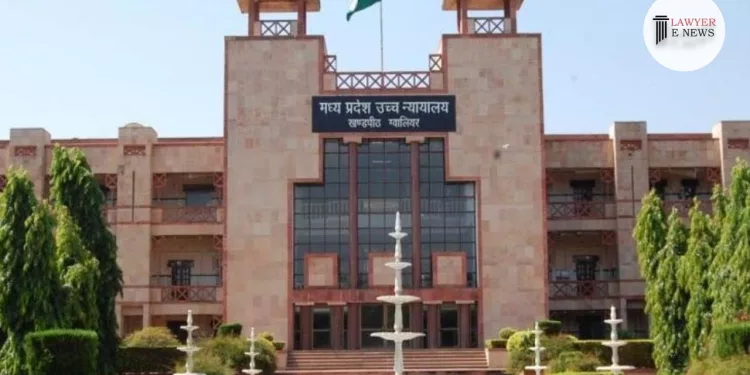Sexual Intercourse by A Man With His Own Wife, Not Being Under Fifteen Years Of Age, Is Not Rape- Madhya Pradesh High Court Quashes FIR Under Sections 377, 294, And 506 IPC Quashed, But Under Section 498-A IPC Upheld

The High Court of Madhya Pradesh, presided over by Justice Prem Narayan Singh, has issued a significant ruling on a petition seeking the quashment of an FIR under multiple sections of the Indian Penal Code (IPC). The judgment, delivered on May 28, 2024, addresses allegations of unnatural sex, dowry demand, and harassment, ultimately quashing charges under Sections 377, 294, and 506 IPC, zwhile upholding charges under Section 498-A IPC.
Background of the Case: The case originated from a complaint filed by the wife of petitioner no.1, Mr. Shashank Harsh, alleging unnatural sex, dowry demands, and harassment. The FIR, registered on August 24, 2023, included charges under Sections 377, 498-A, 294, and 506 of IPC. The complainant alleged that Mr. Shashank Harsh committed unnatural sex with her, leading to a mouth infection, and that the family demanded Rs. 20 lakhs as dowry. Additionally, she claimed verbal and physical harassment for not fulfilling these demands. The petitioners argued that these allegations were false and motivated by matrimonial discord.
Court Observations and Views:
Marital Rape and Section 377 IPC: The court’s observations on marital rape and Section 377 IPC were pivotal. Justice Singh reiterated the legal framework’s stance, stating, “Sexual intercourse by a man with his own wife, the wife not being under fifteen years of age, is not rape.” He further noted that the amended definition of “rape” under Section 375 IPC includes unnatural acts as part of rape, but with an exception for marital relationships. The judgment emphasized, “Marital rape has not been recognized so far under the current legal framework.” Consequently, the court quashed the FIR under Section 377 IPC.
Justice Singh underscored, “In view of the amended definition of ‘rape’ under Section 375 IPC, the allegations made in the FIR do not constitute an offence under Section 377 IPC against the petitioner.” This reinforces the legal distinction between consensual acts within marriage and criminal offenses outside it.
Offences Under Sections 294 and 506 IPC: The court found insufficient evidence to sustain charges under Sections 294 and 506 IPC. It was observed, “There is no material on record to substantiate the claims of obscene acts in public or credible threats causing fear.” The allegations were deemed vague and unsubstantiated, leading to the quashing of these charges.
Legal Reasoning: The judgment meticulously analyzed the legal interpretations and precedents, including significant cases like Umang Singhar vs. State of Madhya Pradesh and Navtej Singh Johar and Others vs. Union of India. The court highlighted, “The allegations of unnatural sex by the husband with his wife cannot be weighed parallel to the offence of rape as defined under Section 375 IPC due to the marital exception.”
Offence Under Section 498-A IPC: However, the court upheld the charges under Section 498-A IPC, citing specific allegations of dowry demand and harassment. Justice Singh noted, “The allegations of demand of Rs. 20 lakhs as dowry and subsequent harassment are supported by statements and documentary evidence.” The court found prima facie evidence to sustain these charges, allowing the proceedings to continue.
Decision: The judgment underscores the complexities in matrimonial disputes involving criminal charges. By quashing the FIR under Sections 377, 294, and 506 IPC, but upholding Section 498-A IPC, the Madhya Pradesh High Court has clarified the legal stance on marital rape and the necessity of substantive evidence for criminal allegations. This decision is poised to influence future cases, highlighting the need for clear legislative definitions and robust evidence in matrimonial disputes.
Date of Decision: May 28, 2024
SHASHANK HARSH & ORS. vs. STATE OF MADHYA PRADESH & ORS.





